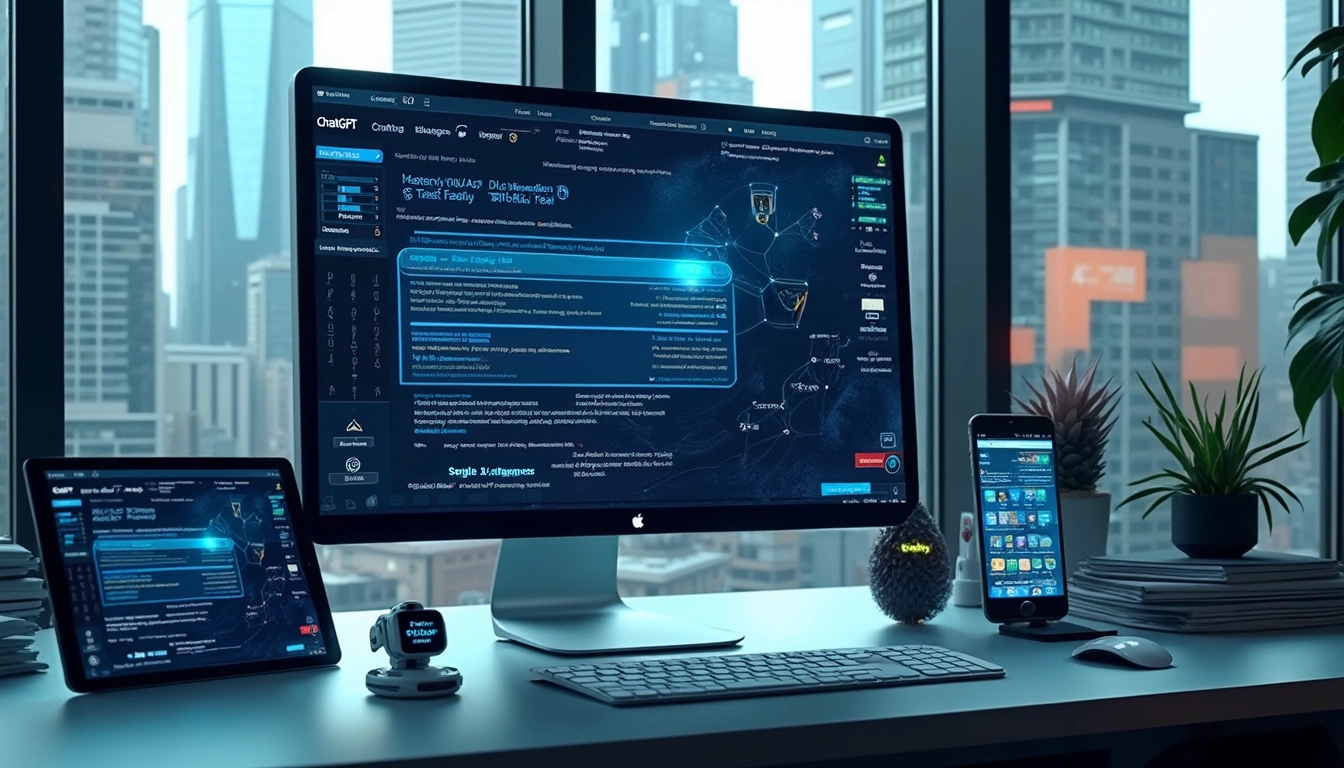
ChatGPT vs Google: The Future of AI-Powered Web Search
ChatGPT’s search capabilities are taking aim at Google, potentially reshaping the landscape of online information retrieval. As OpenAI continues to enhance its AI-powered chatbot, the integration of web search functionality within ChatGPT presents a formidable challenge to Google’s long-standing dominance in the search engine market.
Key takeaways:
- ChatGPT Search allows users to search the web directly within the conversational interface
- It leverages natural language processing for more human-like interactions
- ChatGPT offers personalized responses based on user interactions
- Google still excels in specialized tasks and comprehensive searches
- The competition between ChatGPT and Google could drive innovation in search technology
Table of Contents
Revolutionizing User Experience: ChatGPT vs. Google
ChatGPT’s search capabilities are revolutionizing the way users interact with online information. Unlike Google’s structured search terms, ChatGPT offers a more conversational approach to queries. Users can ask questions in natural language, just as they would when talking to a friend or colleague.
This conversational interface allows for more nuanced and context-rich interactions. ChatGPT generates tailored replies based on previous exchanges and user inclinations, creating a more personalized search experience. In contrast, Google personalizes results primarily based on browsing history and geographical location.
One of the most significant advantages of ChatGPT’s search functionality is its ability to deliver clear, ad-free, and conversational responses. This approach often eliminates the need for users to sift through multiple search results or navigate to different websites to find the information they need.

Efficiency and Response Time: A Head-to-Head Comparison
When it comes to efficiency and response time, both ChatGPT Search and Google Search deliver quick results. Google has long been known for its lightning-fast search capabilities, producing results in milliseconds. However, ChatGPT is not far behind, providing real-time replies with more concise and direct answers.
One of the key advantages of ChatGPT is its ability to save users time by providing comprehensive answers without the need for additional navigation. This efficiency can be particularly beneficial for users seeking quick information or solutions to specific problems.
To automate your search processes and streamline your workflow, you might want to consider using Make.com, an automation platform that can help you integrate various search tools and optimize your information retrieval process.
Accuracy and Relevance: Strengths and Limitations
ChatGPT leverages advanced AI and natural language processing to comprehend questions and deliver relevant responses. This allows it to understand the context and intent behind user queries, often resulting in more accurate and targeted answers.
On the other hand, Google employs sophisticated algorithms to rank results based on relevance, credibility, and popularity. While this approach has proven effective over the years, it can sometimes lead to information overload, requiring users to sift through multiple results to find the most relevant information.
However, it’s important to note that ChatGPT’s dataset is currently limited to information up to 2021. This limitation can affect its ability to provide up-to-date information on current events or recent developments. Google, with its continuously updated index, maintains an advantage in delivering the most recent information.
Specialized Capabilities: Where Each Platform Shines
While ChatGPT excels in providing direct answers to complex questions and generating detailed explanations, Google still holds the upper hand in certain specialized tasks. Here are some areas where each platform shines:
- ChatGPT: Excellent for complex queries and detailed explanations
- Google: More efficient for tasks like shopping, maps, and image searches
- ChatGPT: Capable of generating creative content and itineraries
- Google: Offers a vast array of sources and visual information
Google’s comprehensive search results and ability to handle specialized tasks like shopping comparisons or map navigation give it an edge in certain scenarios. However, ChatGPT’s ability to provide detailed explanations and generate creative content makes it a powerful tool for users seeking more in-depth information or assistance with complex tasks.
The Future of Search: Implications and Innovations
As ChatGPT’s search capabilities continue to evolve, it has the potential to replace Google for many everyday search queries. This competition between ChatGPT and Google is likely to drive significant innovation in search technology, benefiting users with improved search experiences and more accurate results.
While Google remains a powerhouse for comprehensive searches and specialized tasks, the search engine landscape is poised for transformation. Advancements in AI and user experience design could lead to new hybrid models that combine the strengths of both conversational AI and traditional search engines.
As we look to the future, it’s clear that the AI search capabilities of platforms like ChatGPT will play an increasingly important role in how we access and interact with information online. Whether you’re a seasoned professional or a casual user, staying informed about these developments will help you make the most of the evolving search landscape.
Sources:
Tom’s Guide, “I Just Tested ChatGPT Search vs. Google: Here’s The Results”
ZDNet, “ChatGPT Has Officially Replaced Google Search For Me: Here’s Why”
Ortmor Agency, “ChatGPT vs Google – The Future of Search”
Boston Digital, “ChatGPT Was Never Meant to Be a Search Engine”



6 thoughts on “ChatGPT vs Google: The Future of AI-Powered Web Search”